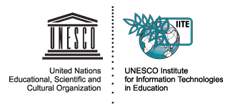Keynote Speaker: Kuzvinetsa Peter Dzvimbo

Prof. Dzvimbo has been working in tertiary education and training; management training and consulting, open and distance learning; and the use of ICTs in higher education in Africa since 1979. He is currently an Executive Dean in the College of Education at the University of South Africa (UNISA). From March 2009 to July 2011, Prof. Dzvimbo was a Deputy Executive Dean in the College of Human Sciences at Unisa where he was responsible for inter alia, marketing, research, community engagement, and strategic direction of the College of Human Sciences with over 60 000 students. Professor Dzvimbo was a member of the UNESCO international jury on Electronic Learning for five years which met annually in Paris to assess global projects in eLearning.
Prior to his appointment to UNISA, he was a Professor of Education Management and Head of the Department of Education Management at the University of Johannesburg. He became Rector of the African Virtual University (AVU) in Nairobi, Kenya for four years from the World Bank in Washington, DC where he was a Senior Education Specialist in tertiary education and training. As Rector of the AVU in Kenya, he worked with almost 60% of the major universities on the African continent in the field of ICTs in education. During that time, he gained valuable experience in working in education development, leadership and management in Francophone Africa (Burundi, DRC, Djibouti, Madagascar, Malawi, Mali, Mauritania, Niger, Rwanda, Senegal), Lusophone (Mozambique) and Anglophone Africa (Ghana, Kenya, Lesotho, Namibia, Nigeria, Somaliland, Swaziland, Uganda, South Africa, Tanzania, Zambia, and Zimbabwe,). He was responsible for strategic direction and leadership of the AVU and its activities in Africa and its partners in Canada, the USA and Australia. While in the World Bank, he worked in the fields of strategic planning and management, sector studies, program evaluation and monitoring, ICTs in education, education policy and planning, tertiary education and training, capacity development at national level and teacher education in Ghana, Grenada, Jamaica, Mozambique, Namibia, Sierra Leone, St. Lucia, Tanzania, Trinidad and Tobago. He also provided sector support to a number of education projects globally.
He was the founding Vice-Chancellor of the Zimbabwe Open University. Prior to that appointment, he was a Pro-Vice Chancellor at the University of Zimbabwe and a Dean in the Faculty of Education at the same institution for five years. He held teaching positions at the University of Zimbabwe, the University of Wisconsin-Madison (USA); the University of the Witwatersrand (RSA); the Rand Afrikaans University (1995-1998) (RSA); and the School of Basic Studies at Ahmadu Bello University (Nigeria) from 1979-1981. He was a deputy principal of a secondary technical teachers college and trained primary school teachers through open and distance learning in Zimbabwe during the early 1980s. His first teaching career was as a secondary school teacher in Freetown, Sierra Lone in 1977.
Prof. Dzvimbo obtained his PhD from the University of Wisconsin-Madison (USA) in Educational Policy Studies; a M.Ed. in Administration and Planning from Ahmadu Bello University in Nigeria; a Post Graduate Diploma in Education from Fourah Bay College, the University of Sierra Leone; and a BA from the same university. He has worked in over 20 countries in Africa in teacher education; change management in education; the use of ICTs in higher education; and open, distance and electronic learning (ODeL) since 1990. His main areas of interest are basic and applied research in ODeL. ; He has presented papers on the use of ICTs in tertiary education and training and other topics in education in Africa, Australia, Asia, Canada, the Caribbean, Europe, India, Latin America and the USA.

